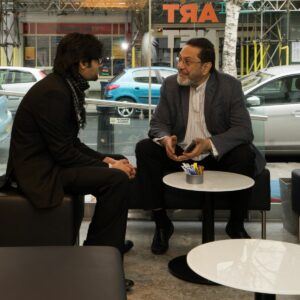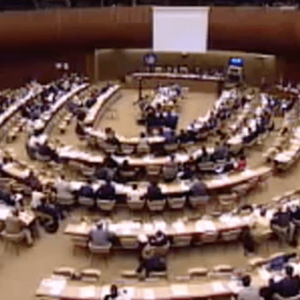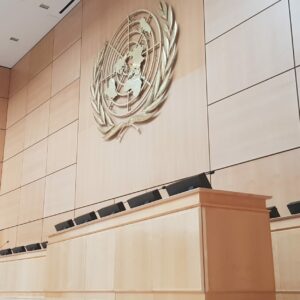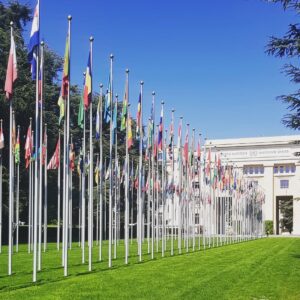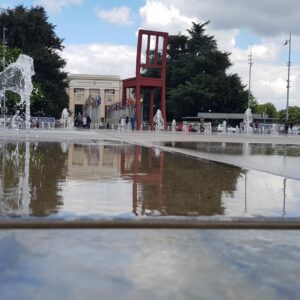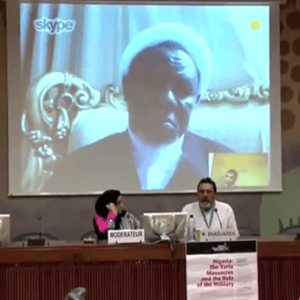IHRC at UN
The Islamic Human Rights Commission (IHRC) has consultative status with the United Nations (UN) since 2007.
IHRC’s work with the UN is related to human rights, it works with Office of the UN High Commissioner for Human Rights (OHCHR), the Special Procedures of the Human Rights Council which encompasses Special Rapporteurs of various thematic and country mandates, the Universal Periodic Review (UPR) which reviews the human rights record of UN member states and various treaty bodies like the Committee on the Elimination of Racial Discrimination (CERD), Committee on Economic, Social and Cultural Rights (CESCR), Covenant on Civil and Political Rights (CCPR), Committee on the Elimination of Discrimination against Women (CEDAW) and Committee against Torture (CAT and the UN Human Rights Council. IHRC focuses on countries as well as issues like racism, discrimination, islamophobia, shrinking space for civil society, the Uighurs, the Rohingya, arbitrary detention of Sheikh Zakzaky of Nigeria and ex-president of Comoros, Ahmed Abdallah Sambi and recently attacks on NGOs rescuing migrants in the Mediterranean.
IHRC has submitted reports to the special rapporteurs, UPR and the treaty bodies. The reports have often been based on research done by the research department at IHRC. IHRC also does advocacy work by organizing side events during the UN human rights council sessions or meeting with Special Rapporteurs and other UN officials to see what can be done or to alleviate a situation or for the UN Human Rights Council to be made aware of a situation or to express concern.
BACKGROUND INFORMATION
Since 2016, the IHRC EU Office coordinates IHRC advocacy activities with EU Institutions, including the European External Action Services, European Parliament, European Commission and EU Delegations.
IHRC advocacy work in the EU currently focuses on three main strands:
– Campaigning for the release of the political activists and human rights defenders e.g. Sheikh el-Zakzaky and Mallama Zeenah in Nigeria
– Protecting migrants’ rights in Southern European Countries
– Combatting Islamophobia in Europe
These actions are pursued through the following activities:
Follow-up of the policy developments on a number of issues that relate to anti-discrimination, anti-racism, counter-terrorism, media laws and regulation at the EU and national levels;
Reinforcing existing networks (network-strengthening and community-building activities) of human rights and civil society networks in Brussels and across Europe;
Presenting IHRC and its positions on a number of policy areas to International and European stakeholders at institutional and civil society levels;
Writing position papers, briefing documents, press releases, research, newsletters to be promoted and disseminated in relevant EU arenas;
Advocating on behalf of individual cases of human rights activists to the EU officers as laid down in the EU Guidelines on Human Rights Defenders, e.g. raising cases with national authorities, observing trials, visiting detained human rights defenders.

